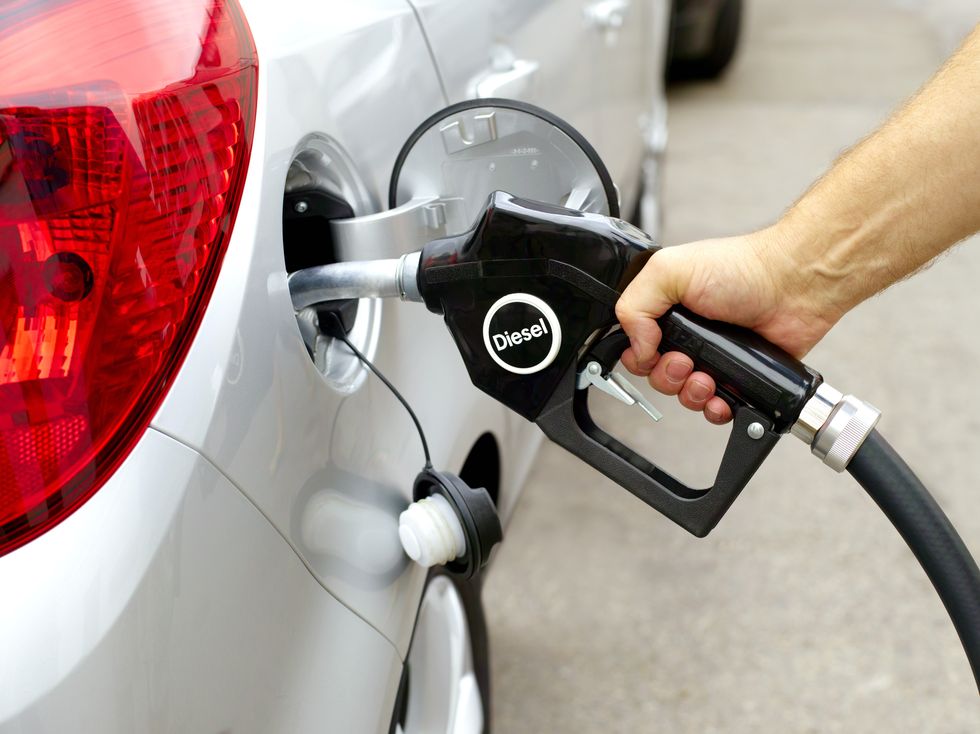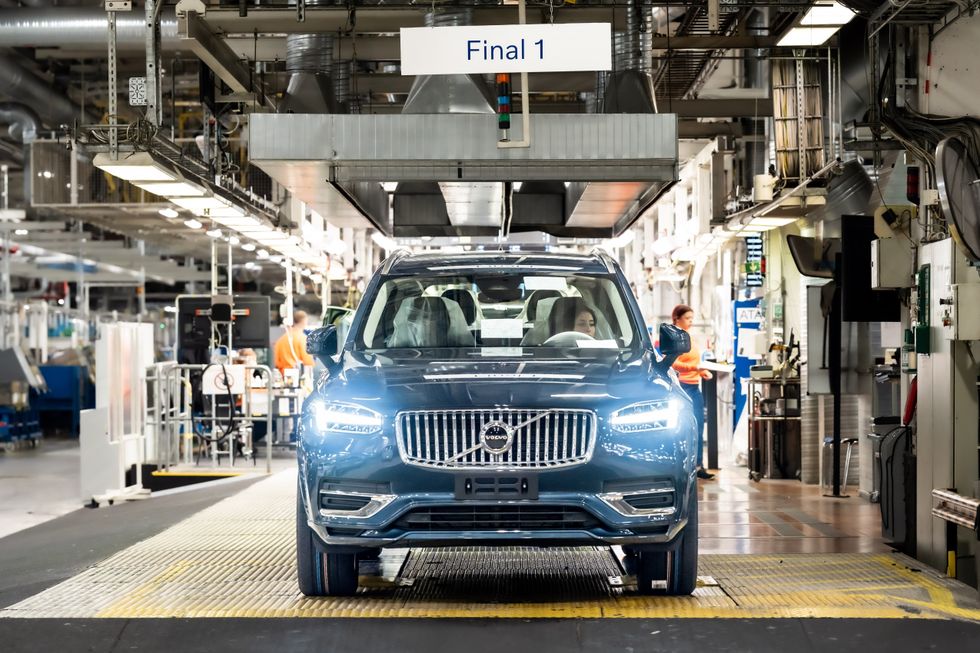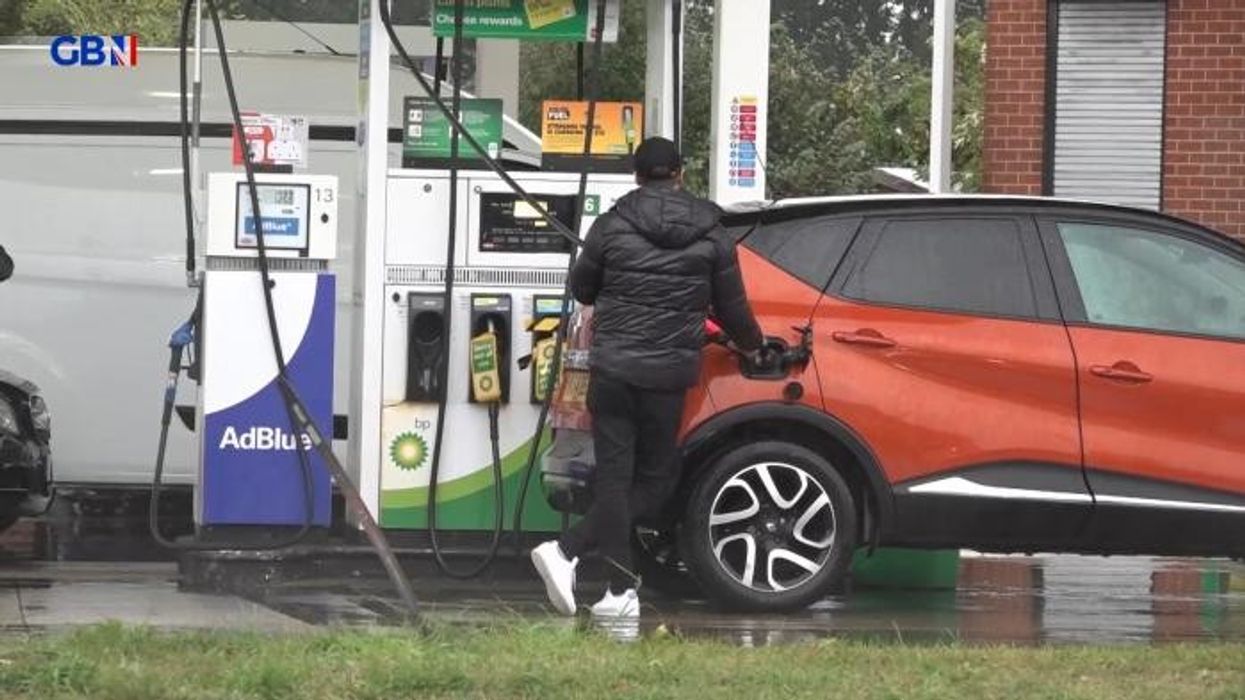Volvo produced diesel-powered vehicles for 45 years
Don't Miss
Most Read
Latest
Volvo has announced that it has manufactured its final diesel vehicle as the brand aims to have net zero emissions by 2040.
The car brand has hit two major milestones in recent months with the final diesel-powered V60 model made in its Ghent factory in Belgium and the last XC90 diesel car off the production line in Torslanda, Sweden.
Volvo has manufactured vehicles for 97 years, with diesel vehicles being produced for 45 of those years.
The brand admitted that diesel vehicles have played a “significant role in our evolution into a premium brand” and helped Volvo gain a reputation for reliability and efficiency.
Do you have a story you'd like to share? Get in touch by emailingmotoring@gbnews.uk

The final diesel Volvo rolled off production lines earlier this month
GETTY
Five years ago, the brand described diesel as its “bread and butter” in Europe, with the majority of cars sold in Europe in 2019 running on the fuel source.
Despite this, most of Volvo’s sales in 2024 on the continent are electrified cars, with 70 per cent of sales being fully electric last year.
Volvo’s global electric vehicle market share has increased by 34 per cent thanks to the accelerated decision to get rid of diesel.
The manufacturer said: “The figures speak for themselves, underscoring that the all-electric direction we’re now heading towards is the right one to take, and we do so with our flag held high.
“While our future indeed is fully electric, our mixed portfolio includes some excellent plug-in hybrid and mild-hybrid models, which will act as a perfect bridge towards that future.”
Volvo made its first diesel-powered vehicle in 1979 with the rollout of the Volvo 244 GL D6, with many looking to switch to the fuel type for efficiency and long ranges.
The “diesel boom” came at the start of the millennium with the launch of the Volvo V70, which had the first self-built diesel engine manufactured in Skövde, Sweden.
Volvo sold its stake in Aurobay, the combustion engine joint venture it held together with Geely Holding.
Geely, a Chinese brand, has taken control of luxury electric vehicle manufacturer Polestar after Volvo said it would stop funding the brand in the near future.
It was announced that Geely, which is based in Hangzhou, China, will continue to provide full operational and financial support to Polestar going forward.
Volvo will now shift to producing only electric vehicles by 2030, with work underway to retrofit factories and sites to ensure production of electric vehicles and batteries can be completed.
It originally announced that it would phase out diesel vehicles by the end of 2024, confirming its plans at last year’s Climate Week event in New York City.
LATEST DEVELOPMENTS:
- Ford to challenge Tesla with new ultra-fast electric vehicle chargers set to hit the UK within years
- Drivers can get a year of free car tax as Martin Lewis urges electric vehicle owners to act before April
- Major driver safety concerns sparked as nearly 3,000 bridges around the UK are 'structurally failing'

Volvo’s last diesel car rolls off the production line
VOLVO
Speaking previously, Jim Rowan, CEO of Volvo Cars, said: “Electric powertrains are our future, and superior to combustion engines: they generate less noise, less vibration, less servicing costs for our customers and zero tailpipe emissions.
“We’re fully focused on creating a broad portfolio of premium, fully electric cars that deliver on everything our customers expect from a Volvo – and are a key part of our response to climate change.”














